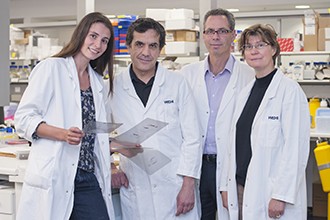Breast cancer beat-down in Melbourne lab
 Melbourne researchers may have found a new treatment for breast cancer after positive results emerged from a leukaemia drug trial.
Melbourne researchers may have found a new treatment for breast cancer after positive results emerged from a leukaemia drug trial.
The team from the Walter and Eliza Hall Institute found that compounds called BH3-mimetics are effective in treating certain breast cancers when combined with the drug tamoxifen. Approximately 70 per cent of breast cancers fall in to the appropriate classification. The team says it hopes the results will lead to clinical trials of BH3-mimetics for treating breast cancers in the next few years.
Melbourne-based Professor Geoff Lindemann said he and his colleagues, “looked at the effect of adding BH3-mimetics to the standard hormone treatment, tamoxifen, used for a subtype of ER-positive cancers called luminal B cancers, which had high levels of BCL-2,”
Professor Lindeman said they “found that a BH3-mimetic called ABT-199/GDC-0199 improved the effectiveness of hormone therapy by stopping or delaying the growth of these aggressive tumours. In one of the tumour models, the combined treatment caused complete disappearance of the tumour, while standard treatment had only a partial and unsustained benefit.”
The luminal B breast cancers are a particularly aggressive form which usually leads to a relatively poor prognosis. Researchers used preclinical models of breast tumour samples donated by Melbourne women undergoing cancer surgery, to understand how real human cancers might respond.
The results of the new research have been published in the current edition of the Cancer Cell journal.








 Print
Print